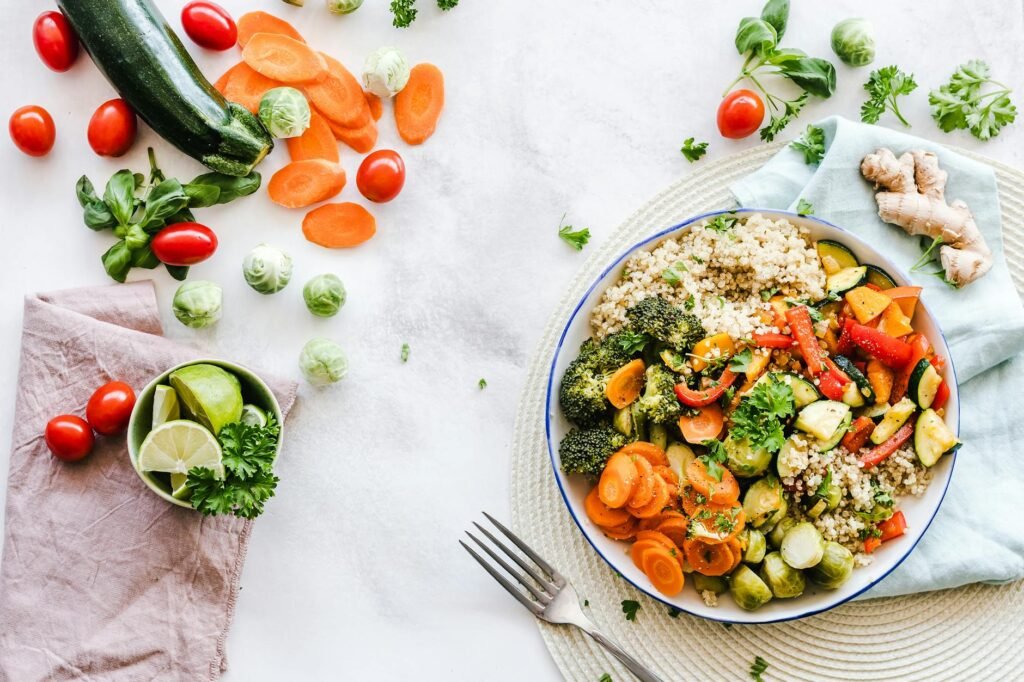


This was truly a weekend of love! Many families and seniors in Saint-Laurent were in for a Valentine’s Day treat on Saturday 15 February 2025.
Over 100 food boxes filled with brain-healthy food and delicious recipes were distributed to seniors and families in need, so that they could enjoy a good meal and celebrate this special weekend with their families.
Hope for Dementia volunteers teamed up with Emmanuella Lambropoulos MP for Saint-Laurent and IGA extra Famille Duchemin to spread some love and healthy eating tips.
Healthy eating should be an integral part of daily living.
Here are some tips from Dina Merhbi, Health & Wellbeing expert:
What we eat plays a big role in our physical and mental health. If you’re worried about dementia or want to support a loved one who is, paying attention to diet is crucial.
Also, certain health conditions like diabetes, high blood pressure, heart disease, and obesity can harm our brains. But the good news is, we can take steps to lower these risks by making smart food choices.
The main focus should be to increase your intake of ‘foods to boost’ and to lower your intake of ‘foods to cut back on’. There is no need to be drastic in your lifestyle. Doing 1 change each day is key to creating lasting changes for the long-term.

Foods to Boost:
- Vegetables: Rich in antioxidants and vitamins, protecting against cognitive decline.
- Leafy greens (spinach, kale): High in folate and vitamins, linked to improved cognitive function.
- Fruits, especially berries: Packed with flavonoids, enhancing memory and reducing inflammation.
- Whole grains: Provides steady energy and essential nutrients for brain health.
- Low-fat dairy: Source of calcium and protein, crucial for nerve function and brain health.
- Lean protein foods: Supports neurotransmitter synthesis and maintains muscle mass.
- Water: Maintains hydration levels vital for optimal brain function.
- Curcumin (turmeric): Anti-inflammatory properties, may protect against cognitive decline.
- Nuts and seeds: Rich in healthy fats and antioxidants, supporting brain health.
Foods to Cut Back On:
- Foods high in saturated fat and cholesterol, like fatty meats and fried foods: linked to increased risk of cognitive decline and heart disease
- Excess salt: can raise blood pressure and contribute to cognitive impairment
- Refined sugars found in sweets and sugary drinks: associated with inflammation, impaired cognitive function over time and may cause to other health issues down the line.
Some additional guidelines to support you:
- Keep your blood sugar stable by eating regularly, every 3 to 5 hours.
- Ensure each meal and snack includes a carbohydrate source (grains or fruits) with a protein source (dairy and animal products, beans, fish and seafood, nuts and seeds, beans or soya-based products)
- Stay hydrated with water and herbal
- Limit caffeine and alcohol
- Include 1 ‘optimal’ food in each meal
- Keep the foods to cut back on for special occasions
Making small changes to your diet can make a big difference in brain health. By choosing nourishing foods and following these guidelines, you’re taking proactive steps to support your well-being. Remember, every bite counts towards a healthier you!
Visit our Resource Centre for more tips and brain-healthy food recipes!


